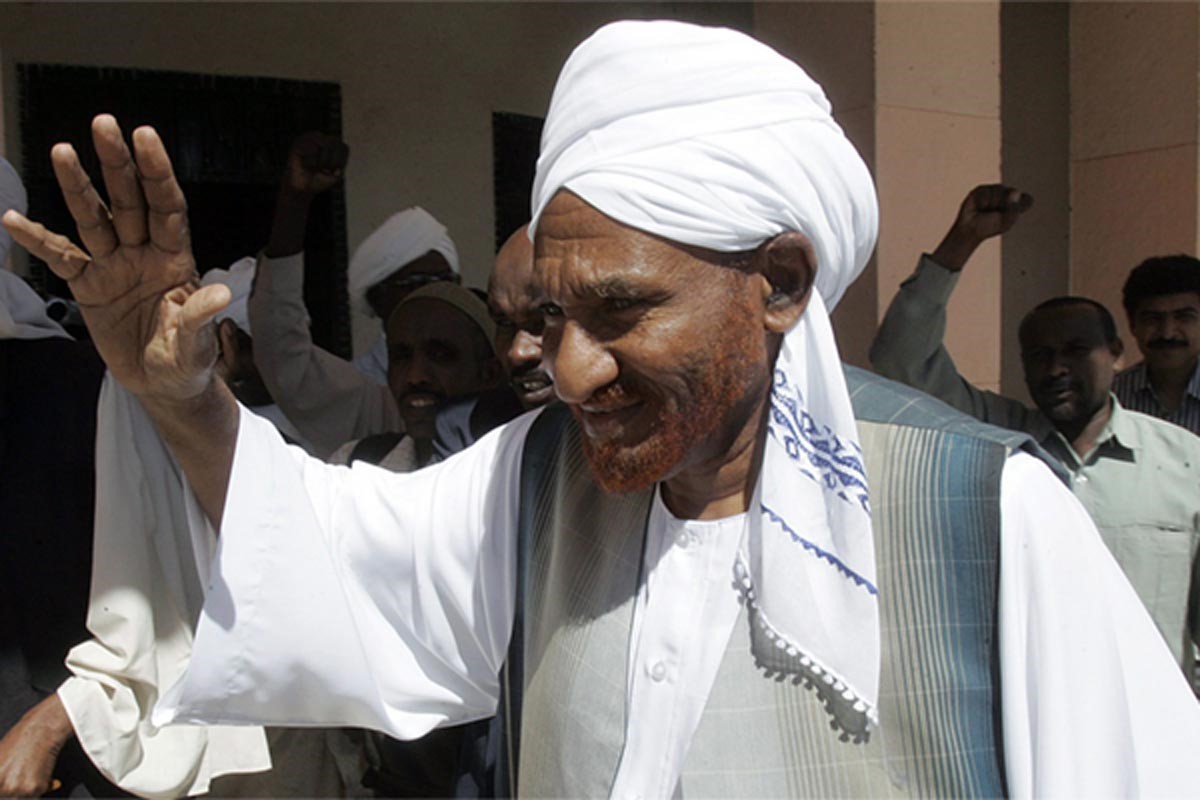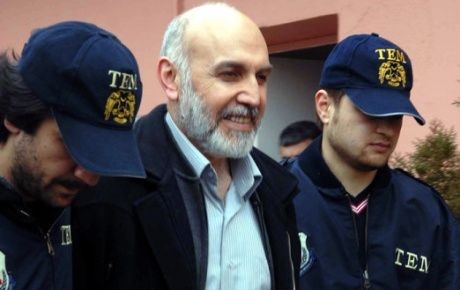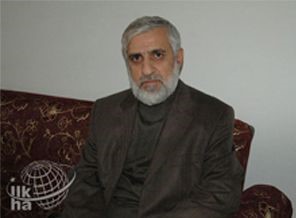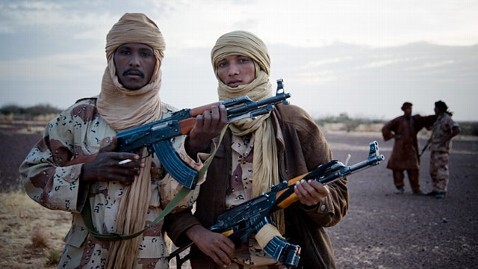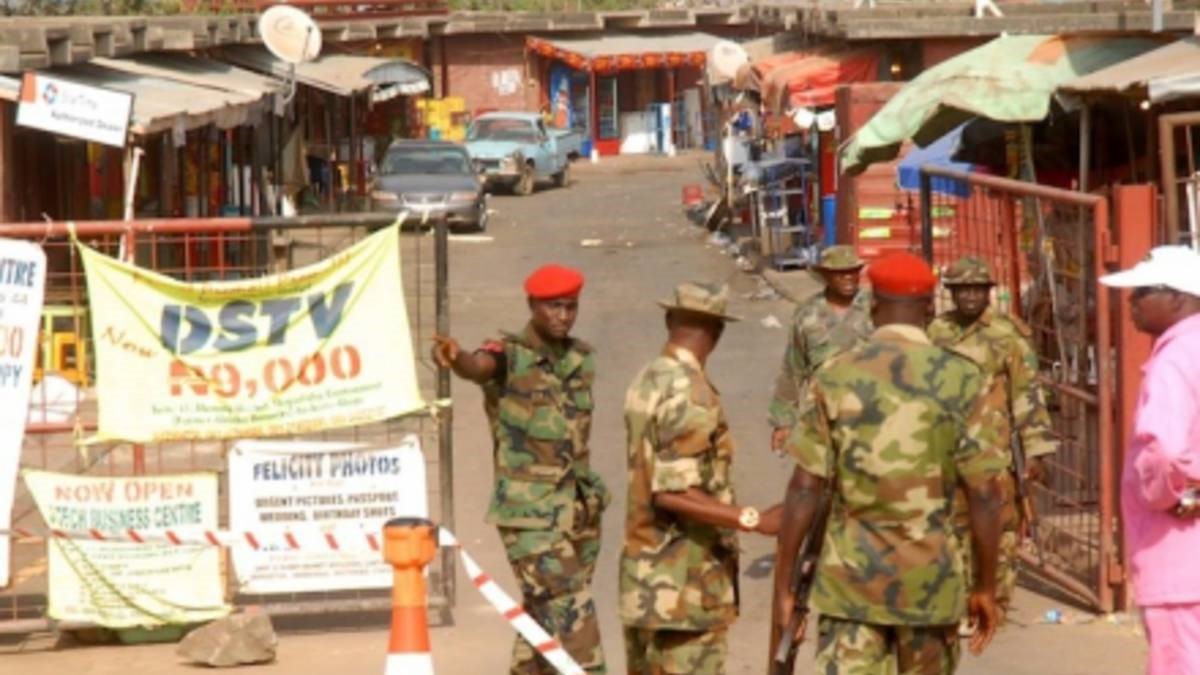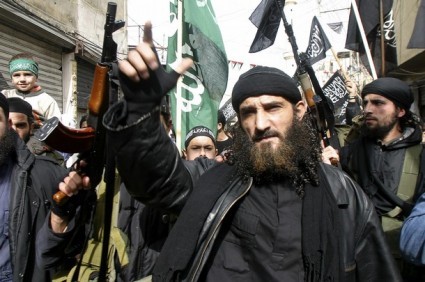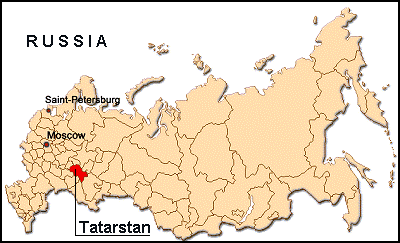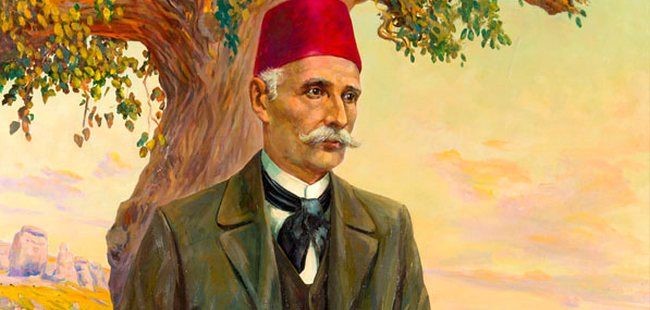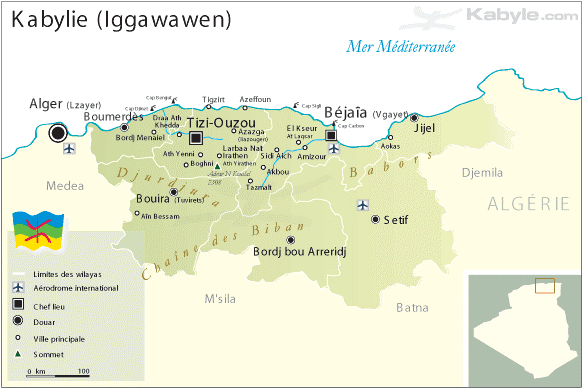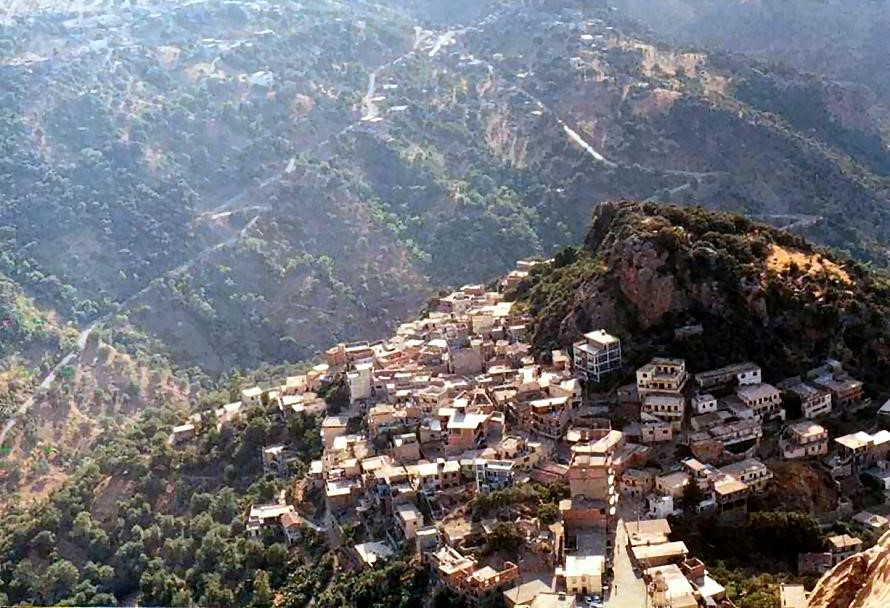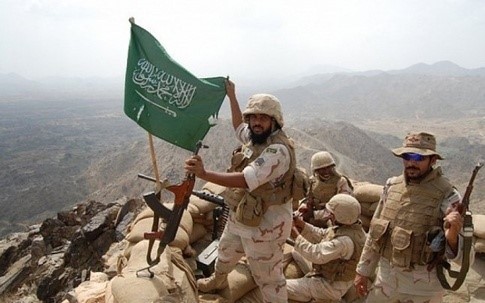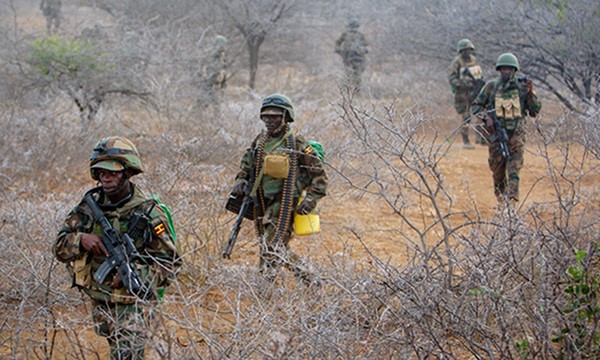Andrew McGregor
December 16, 2010
As peacekeepers pull out of a notorious and remote corner of Africa known as the “Triangle of Death,” bands of gunmen are pouring in to fill the void in security. At the core of this problem is a former French colony that became a nation-state despite a lack of viability and is now rapidly collapsing, offering guerrillas, terrorists and outlaws a relatively risk-free haven to conduct their operations.
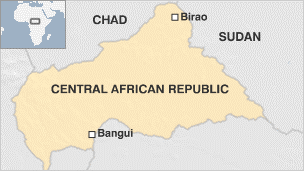 (BBC)
(BBC)
Background
A land-locked nation of 4.4 million people, the Central African Republic is one of the poorest countries on earth. As Oubangui-Chari, it was part of the French African Empire from the late 19th century to 1960, when it gained independence as the Central African Republic (CAR). The region’s pre-independence leader, Barthelmy Boganda, did not believe the CAR could become a viable independent state and instead sought to make it part of an envisioned “United States of Latin Africa,” uniting the former Central African colonies of Belgium, France, Portugal and Spain. Boganda and his dream of a united Central Africa died shortly before independence when his plane exploded in 1959. Agriculture dominates the local economy, though there are a number of unexploited resource reserves. Forestry and diamond mining account for most of the CAR’s slim export revenue. France protects its interests and citizens in Bangui with an infantry company of 200 legionnaires belonging to the 2e Régiment Étranger d’Infanterie.
The CAR is best known in the West for the antics and atrocities of its former ruler, “Emperor” Jean-Bédel Bokassa, a former captain in the French Colonial Army who squandered the nation’s meager wealth in ruling the re-named “Central African Empire” in an imperial style from 1966 to 1979. In recent years the political violence in the CAR has become closely tied to violence in neighboring Chad and Darfur.
Battle for Birao
On November 24, rebels belonging to the Convention des Patriotes pour la Justice et la Paix (Convention of Patriots for Peace and Justice – CPJP), supported by fighters formerly belonging to Chadian rebel movements, took the strategically important town of Birao and captured its military commander after a short battle with troops of the Forces Armées Centrafricaines (Central African Armed Forces – FACA) (AFP, November 24). The rebels had previously attacked Birao in July. The CPJP began operations in 2009 and since then has seized a number of towns and villages in the CAR’s northeast (BBC, November 27, 2009). Rebels claimed the defeated FACA troops belonged to the Presidential Guard, the only CAR military unit of any real worth (AFP, November 25).
Heavy rains prevented CAR forces from returning to the town after it was seized, though most of the country’s best troops were busy in the capital of Bangui preparing for the December 1 military parade commemorating the 50th anniversary of the independence of the CAR. On taking Birao, CPJP head of operations Abdoulaye Issene declared, “We have seized 48 prisoners and recovered a big stock of weapons. Birao is taken, but our target is Bangui” (Reuters, November 24).
Units of Chad’s military based in Abéché crossed the border with the CAR in late November on their way to Birao. A CPJP statement described a Chadian force including tanks and helicopters that began to bomb Birao, forcing the evacuation of the rebels on November 30. Chad’s army chief-of-staff, General Alain Mbaidodenande Djionadji, told reporters, “We affirm that the Chadian Army has exercised its right of pursuit by destroying the remaining mercenaries who have involved themselves with unidentified adventurers who were holed up in Birao” (AFP, November 30; Reuters, December 1). The town’s population of 8,000 was forced to spend a week in the bush without water, food or shelter. Food stocks kept in the town were looted during the fighting, leaving nothing for returnees (IRIN, December 7).
In a belated attempt to assert sovereignty in the area, CAR government spokesmen were quick to claim the retaking of Birao as a victory for the FACA, saying 65 rebels had been killed in the battle. According to CAR spokesman Fidele Ngouandjika, CAR troops had retaken the town without the help of foreign forces, “contrary to the mendacious allegations” broadcast by foreign media sources (AFP, December 2). This declaration ran contrary to statements from both the Chadian military and the CPJP.
The former leader of the CPJP was Charles Massi, the minister of mines and agriculture in the government of President Ange-Félix Patassé, who was supported by Libyan troops and 300 Congolese rebels under Jean-Pierre Bemba, who is currently on trial for war crimes in The Hague. Massi took to the bush after Patassé’s government was overthrown in 2003 by General François Bozizé, the current ruler of the CAR. After being arrested by Chadian authorities, Massi is believed to have died in January 2010 after extensive torture at the Central African prison of Bossembélé. President Bozizé has close ties with the Chadian regime of Idriss Déby and came to power with Chadian military assistance. Chad supplies many members of the Presidential Guard, the best-equipped element of the CAR armed forces.
The Peacekeepers Depart
A UN peacekeeping mission, the Mission des Nations Unies en République Centrafricaine et au Tchad (MINURCAT), has provided security along the borders of Chad, Darfur and the CAR since 2007. The severely underfunded and undermanned mission has roughly 1,500 uniformed military and police personnel drawn from 35 nations under the military command of Senegal’s Major-General Elhadji Mouhamedou Kandji. The military component of the force was authorized to succeed operations of the European Union’s EUFOR Tchad/RCA, a peacekeeping force of 3,700 troops under the command of Ireland’s Lieutenant General Patrick Nash. The majority of the force came from France, with Ireland and Poland also making major contributions. EUFOR Tchad/RCA ended operations in March 2009. Birao was the site of a small EUFOR Tchad/RCA base during the EU deployment.
The decision to withdraw MINURCAT came in May after Chad said it would assume responsibility for security in its territory after criticizing MINURCAT’s slow deployment and apparent inability to provide security for civilians. Though the peacekeepers had little effect in the northeastern CAR due to small numbers and a limited mandate that prevented them from tackling local bandits, their full withdrawal (scheduled for December 31, though operations ended on October 15) will leave security in the region solely in the hands of the CAR armed forces, which has very little presence in the area. Most of the army, including its best-equipped troops, is kept in the capital of Bangui as protection for the regime against coups, insurrections or civil unrest. President Bozizé is also believed to oppose the presence of international peacekeepers in the CAR, preferring instead to seek financial support for the expansion of the CAR’s armed forces. At the moment, the president cannot count on the complete loyalty of his poorly-equipped army. There are reports of disobedience and refusals by some troops to deploy to dangerous areas of the country, leading to purges of disloyal soldiers (Centrafrique Presse, March 24, March 29; Radio Ndeke Luka [Bangui], March 26).
In the absence of MINURCAT, a military protocol was signed between Bangui and Khartoum to create a joint border patrol to monitor the movements of Chadian and Sudanese rebels in the region. The Sudanese component includes former Darfur rebels of the Sudan Liberation Army (SLA) under the command of Minni Minawi, who joined the government in 2006 (SUNA, September 26; Sudan Tribune, September 27).
The “Triangle of Death”
Between 1850 and 1910 most of what is today the northeastern part of the CAR was largely depopulated by immense slave raids carried out by the Sultans of Dar Kuti, Dar Wadai and Dar Baguirmi. Though it was no longer called slavery, French colonial forces continued the tradition of forced labor in the 20th century. Birao remains highly isolated from the rest of the CAR (which has less than 500 km of paved roads) and has even been used as a place of internal exile. The town changed hands several times in 2006-2007 in fighting between the rebel Union des Forces Démocratiques pour le Rassemblement (Union of Democratic Forces for Unity – UFDR) and CAR troops backed by French forces stationed in Bangui. After the negotiation of a peace agreement with the UFDR, Birao was occupied by EUFOR Tchad/RCA troops, succeeded by a MINURCAT detachment, which turned the town over to the FACA on November 15.
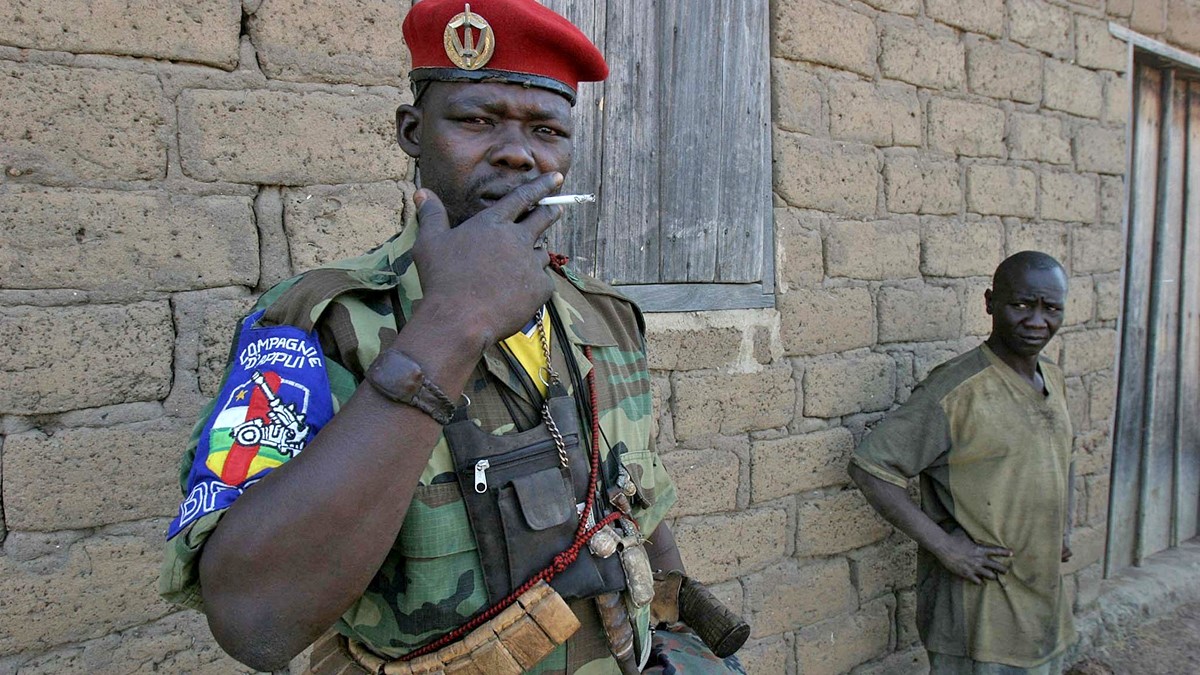 Forces Armées Centrafricaines Soldier in Birao – note row of amulets worn on his lanyard.
Forces Armées Centrafricaines Soldier in Birao – note row of amulets worn on his lanyard.
Today, nearly three million displaced people live in the triangle formed by the borders of Sudan, Chad and the CAR. Without government control, civilians of the region have suffered widespread abuses at the hands of roving gangs of gunmen with or without political pretensions who replenish their ranks, labor force and harems by abducting children. Development of the CAR’s northeast has been ignored by successive CAR governments, most of which have concerned themselves solely with enriching members of the regime and their tribal supporters. The government has attempted to farm out security by raising and backing local vigilante groups, but even these have posed a threat to local security. An estimated 30,000 refugees from Sudan and the DRC are present in the CAR, many dwelling in the bush far from humanitarian relief.
The collapse of the Chadian insurgency after its Sudanese sponsors negotiated a peace agreement with N’Djamena left a large number of well-armed fighters looking for new bases in the CAR rather than returning to Chad to take advantage of an amnesty. After most of the leaders of the Darfur-based Chadian insurgent groups were expelled by Khartoum to Doha, these groups quickly deteriorated into undisciplined and leaderless gangs. Among those believed to be heading to the CAR are fighters from the Union des Forces de Résistance (UFR) under the command of Adam Yacoub (Sudan Tribune, September 27).
The Lord’s Resistance Army
An ongoing and seemingly irresolvable security threat in the region is posed by the Lord’s Resistance Army (LRA), a decades-old insurgent group that has gradually morphed into a loosely organized terror-spreading group that has no other ideology other than ensuring its continued existence through rape, murder, kidnapping, looting and torture. The Acholi-based LRA has its roots in the 1986 overthrow of Uganda’s Acholi ruler, General Tito Okello, by Yoweri Museveni’s National Resistance Army (NRA), but has long ceased any pretense of representing the Acholi community.
Since the failure of the U.S. supported Ugandan military operation “Lightning Thunder” in December 2008 (which split the LRA into a number of different groups rather than eliminate it), the movement has continued its depredations in southwest Sudan, the CAR and the northeastern DRC. In the last two years the LRA has killed over 2,000 people in the CAR’s northeast and abducted thousands more. Though LRA leader Joseph Kony no longer has effective control of his scattered fighters, his divided movement continues to carry out atrocities and abductions under various sub-commanders. Units of the LRA attacked Birao in October, looting shops and abducting women (AFP, November 24).
CAR Defense Minister Jean-François Bozizé, nephew of President François Bozizé, has denounced LRA atrocities in the nation, including “incursions, pillage, massacres, rapes, hostage takings and villages that are systematically burned down,” while insisting that “the LRA is now a terrorist organization like al-Qaeda” (AFP, October 14).
The CAR has also joined in forming a joint military brigade with forces from Uganda, the Democratic Republic of the Congo (DRC) and the Sudan, intended to complete the elimination of the LRA (Daily Monitor [Kampala], October 19). However, with South Sudanese independence looking like the sure result of next month’s independence referendum, Khartoum may choose to continue using the LRA as a regional proxy to threaten the security of those nations choosing to support the separation of South Sudan.
A new U.S. strategy designed to eliminate the threats posed by the LRA to civilians and regional stability has four stated objectives:
• Increase protection of civilians.
• Apprehend or remove Joseph Kony and his sub-commanders.
• Promote the defection, disarmament, demobilization and reintegration of the remaining LRA fighters.
• Increase humanitarian access and provide relief to affected communities. [1]
Conclusion
Lying outside of any effective government control, Birao and the rest of the CAR’s northeast region offer insurgent groups, bandits, deserters and renegades an appealing mix of isolation from the CAR state infrastructure and proximity to the borders with Chad and Sudan.
Presidential elections, which have been postponed four times this year, are now set to take place on January 23, 2011, only weeks after neighboring South Sudan’s independence referendum, an event with profound implications for regional security. With the two leading candidates being Bozizé and his ousted predecessor Patassé, there appears to be little chance for substantial change in the CAR. A third possible candidate, former prime minister Martin Ziguele, has been accused by government spokesmen of being a terrorist and the “new de facto president of the CPJP,” though no evidence was produced to support this charge (AFP, September 24).
Note
1. “Letter from the President on the Strategy to Support the Disarmament of the Lord’s Resistance Army,” November 24, 2010, www.whitehouse.gov/the-press-office/2010/11/24/letter-president-strategy-support-disarmament-lords-resistance-army.
This article first appeared in the December 16, 2010 issue of the Jamestown Foundation’s Terrorism Monitor

